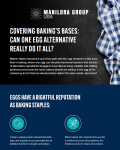Mondelez, PepsiCo profits hit as Russia invasion of Ukraine hinders production, sales

Despite the drag, both companies remain resilient – reporting strong earnings and profit gains thanks in part to higher prices and strong sales elsewhere around the world as consumers, for now, remain willing to pay more for packaged snacks and beverages.
While executives at each company are optimistic, they also caution that the landscape is volatile and consumers’ ability and willingness to continue to absorb ever rising prices may begin to run thin in coming quarters – prompting conservative outlooks.
Mondelez takes $145m hit from the war
While the war has cost both companies, it has hit Mondelez especially hard – costing the snack maker $145m in one-time costs and asset write-offs.
The financial blow comes in part from the decision at the start of the war to shutter the two plants the snack maker has in Ukraine, which generates about $320m in revenues annual with sales to Ukraine and surrounding European countries. In addition, one facility experienced significant damage caused military action, but luckily no employees were hurt at either facility.
CEO Dirk Van de Put said it is still too early to provide potential next steps for the facilities, but he said the company would work to make them operational again when the local situation allows.
“For the remainder of 2022, we expect about $200m in revenue headwinds from the loss of revenue in Ukraine as well as losses related to finished goods that our Ukraine plants produce for other countries within Europe, where we do not have supply alternatives, yet,” CFO Luca Zaramella said.
The lost revenue is expected to drag down the company’s earnings per share by 3 cents, and shave off about one point from the company’s topline growth, which is now expected to reach 4% for 2022.
The war also has exacerbated cost inflation, which Mondelez now expects to reach the low double-digit range for 2022 versus prior predictions of about 8%, despite coverage of about 90% for the year, Zaramella added.
To offset higher input costs, Zaramella said that the company expects to raise prices again in a number of markets, which he acknowledged could increase elasticity despite previous increases having little impact on consumer purchases.
Despite these challenges, Mondelez still reported a 7.3% increase in net revenue to $7.76b in the quarter and a higher than expected adjust profit of 84 cents.
PepsiCo reports ‘meaningful’ costs, losses related to the war
PepsiCo has also suffered a “meaningful amount” due to the war, CFO Hugh Johnston told investors yesterday.
At the beginning of the war, Pepsi suspended some of its sales in Russia, which account for about 4% of its annual revenue, which Johnson characterized as having “a bit of a drag in terms of our overall outlook.”
He also noted at the start of the war PepsiCo stopped operations in Ukraine, but has since re-opened its factory in Kyiv and hopes to get back to operations in Ukraine as the safety situation allows.
Nonetheless, Johnston said, “we don’t expect the business to deliver a lot of growth this year given all of the challenges and the decisions we’ve made.”
The company also reported a $193m impairment charge after taxes related to its juice and diary brands in Russia, which it is trying to reposition or discontinue, and an additional $241m impairment charge also related to the conflict.
Still, PepsiCo saw net revenue gains up 9.3% for the quarter and now expects to deliver 8% organic revenue growth for the year versus previous guidance of 6%, thanks mostly to strong sales elsewhere around the world and higher prices.
Both companies offer aid
Despite the unexpected and staggering cost of the war, both Mondelez and PepsiCo remain committed to supporting the people of Ukraine and its employees in the country.
Condemning the “senseless violence” of the war, Van de Put said Mondelez is taking steps to protect its colleagues financially, with boarder crossings and finding housing.
“As part of these steps we are continuing to pay our employees in Ukraine. Additionally, we are stepping up our commitment to relief efforts, dedicating so far $10m to humanitarian support and food security. This includes donations to international and local aid organizations focused on supporting all people in Ukraine, but also with specific focus on the communities where we have plants,” he said.
Likewise, PepsiCo says it continues to prioritize the safety and well-being of its Ukrainian associates, and it continues to provide food, milk, and refrigerators to relief organizations and has donated to the World Food Program, World Central Kitchen, Save the Children, the Red Cross in Poland and World Vision in Romania.
“Our hearts go out to the Ukrainian people who are caught in the middle of this deadly conflict, and we join all those praying for peace,” PepsiCo’s executives said in a joint statement.


















